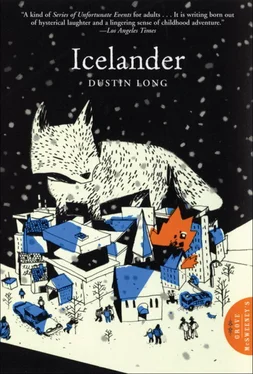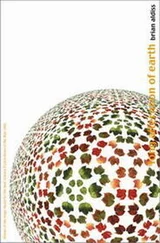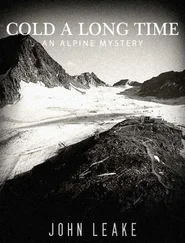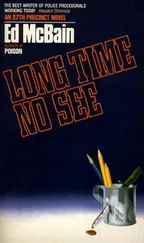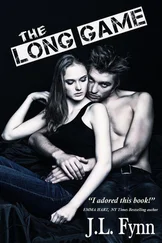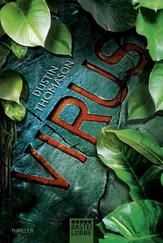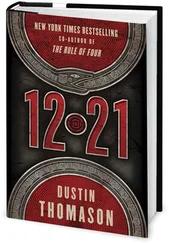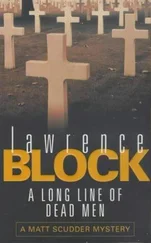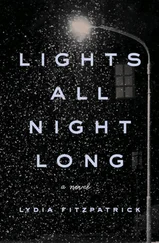The activated flashlight resolved the enigma of the nonexistent switch; the overhead bulb—had it not been broken—would have been operated, rather, by means of a chain that hung from a fixture in the ceiling. Mr. Pacheco pulled the chain to no effect as Mr. Wible retrieved a piece of the shattered bulb from the book-scattered floor. Mr. Wible examined this object for a moment before restoring it to its initial position beside a nineteenth-century edition of Tristram Shandy . Six feet away, a ladder led upward. We ascended.
The room above did not hold anything of much significance. More piles of books, a desk at the far end, and a window painted black. The books bore no features worthy of commentary. Upon the periphery of the desk rested a rotary phone, a lamp, and an amber jar of adhesive (whether for bookbindery or more recreational purposes, we dared not assume). The center of the desk’s surface was occupied only by two conspicuously dustless rectangles of differing size, which attracted our attention precisely because we had no way of ascertaining what had so recently resided atop them. [30] This is the first of three semi-significant absences that I have located in the text (though there may be others that I have missed). I suspect that this one in particular is merely meant to make me wonder what happened to those supposedly precious pages.
The most obvious answer was “two books,” which called to mind Leshio’s comment that he had “two books” that he thought Jorgen would be greatly interested in. Would Jorgen not be interested in books taken from his own back room? And if Leshio had been in the store before us… But this line of thought was leading us too far into the realm of baseless postulation. The rectangles of absence were our only real data, and they in themselves provided us but little ground for hypothesis.
The window, by the very obscurity of its import, was also immediately compelling to us. Though the practical purpose of the black paint was apparent—direct sunlight damaged books—the extended symbolic implications were what intrigued us. Again, however, with no evidence on which to support one given interpretation over any other, we decided to reserve our speculation for the moment.
There was nothing more for us here.
So we returned to the shop floor, leaving the flashlight where we had found it. Where Mr. Pacheco had found it. We then turned off the halogen lights and placed the fox-tethered key back in its drawer beneath the register. Aside from the toppled books in the back and the Valison novel that we had removed from its place on the shelf, Jorgen’s shop harbored no signs of our intrusion. We locked the door before we closed it.
The snow still fell with an intensity similar to that which it had possessed prior to our entering the shop. Additionally, the wind had begun to blow a bit harder, imbuing the air with an increased chill. Mr. Wible lingered in the shelter of the doorway to light his pipe.
Across the street, we noticed a small fox slip out of the snow, down through a sewer grating that billowed steam. “I must review the Valison novel,” Mr. Pacheco said, and Mr. Wible obligingly fished the plastic bag from his satchel before striking another match. After glancing again over the title for no more than a few seconds, Mr. Pacheco returned the book.
Mr. Wible finished puffing his pipe into life and deposited the spent matches in the pocket of his trench coat. “What is it?” he then enquired.
“The inscription on the title page,” Mr. Pacheco responded, stifling a cough at Mr. Wible’s smoke. “It may not be the volume’s previous owner after all, but rather a concrete clue to the MacGuffin affair. Whatever the case, we must repair immediately to the Elite Café.”
Mr. Wible harrumphed. Our Heroine’s earlier presence in that establishment had determined it as the next item on our itinerary well before Mr. Pacheco’s pronouncement.
BLAISE
It is this morning and I am sitting with Our Heroine at a table in the Elite Café. I have switched from coffee to tea. The bag leaks its reddish oils into the water of my glass. Our Heroine is murmuring platitudes about the death of my wife. Or perhaps she is not. It is difficult to listen to her.
“You’ve got a little…” She reaches across the table and dabs at my nose with her napkin, wet from the bottom of her teacup. I do not flinch. The napkin carries with it a spot of blue when she pulls it away.
“Thank you for saving me back there,” she says. “I’m like a rabbit in the headlights with him. I just can’t turn away even though I know he’s going to run me over.”
“You are welcome,” I offer. She does not immediately respond.
Silence is an unusual state for her, despite her otherwise apparent reverence for words. She shifts uncomfortably in her seat, and I see that her hair is not quite dry. I do not think that it could have been so dampened by the snow. Ridiculously, I feel the sadness of how cold her ears must be and how cold my wife’s ears must be also. Our Heroine sips her tea.
“You know, until yesterday, I felt like it was all over,” she says. “That after my mother died there was no way this sort of thing could happen again. I felt like she had somehow been the one who drew bad things to us. It’s been sixteen years.”
She trembles slightly, and I think again of her hair; it is most often blond, but wetness has darkened it to brownish.
Shirley enjoyed cafés. Perhaps I desired the resemblance to normality that is demanded by a crowded room. I now wish I had chosen someplace other.
“Bad things have also happened in the past sixteen years,” I say. “To all of us.”
“I know.” She looks up from her tea and into my eyes as she has looked into them once before. “But this is the worst thing.”
There is nothing I can say. I am not on the verge of shouting, but her words resonate with my shouts of last night. I notice now the atmosphere of unreality that has surrounded me since first I heard that my wife was dead. Only the sound of my shouts can disperse it, and only for brief moments. It is the dullness of the pain. It is the worst thing.
“At least you know that she loved you,” Our Heroine says, and the thing is abruptly worse. “She didn’t just leave you behind of her own free will.”
I gulp deeply of my tea and hold the liquid in my mouth until it has lost its heat. She is speaking only of the infidelity of Prescott. Unless—
“I’m sorry. I can’t believe I just said that,” she blurts. She is speaking only of the infidelity of Prescott.
I swallow. “It is copasetic,” I say. “Prescott was not good for leaving you of his own free will.”
YMIRSON
Emily. She was being held against her will by Surt. I had to save her. I remember this. As I emerged from the dark cavern my eyes were stung by the whiteness of the snow, and it was thus that I did not see the blackguard who had crept behind me even when I turned at the noise of him. There was no pain, but I was dizzy and I fell, and my face was clumsy from the snow. I still remember this.
When my eyes could see again at all, the light was blurred, but I saw Emily pulling rubber from the face of Surt. I saw something of his face. Then my daughter, turning me over and pulling me to my feet, spoke to me. The infernal reporter was there with her. “Let’s just get him to your house,” she said to my daughter, and then she said something to me.
“Are you all right, Mr. Ymirson?”
But I knew that she should not be spoken to, so I held my silence.
NATHAN
At first I just stood there in the Thing Room like an idiot, not saying anything, waiting for the father and son to finish chatting with their buddies. I figured they were probably discussing whether or not I’d get permission to see the real inner sanctum, and I didn’t want to ruin my chances by saying anything stupid. But after a few minutes passed, and the son just got up and walked off down one of the side corridors without so much as a glance in my direction, I realized that I was gonna have to fend for myself for a while.
Читать дальше
